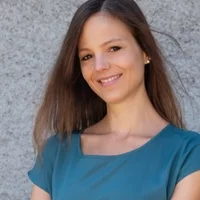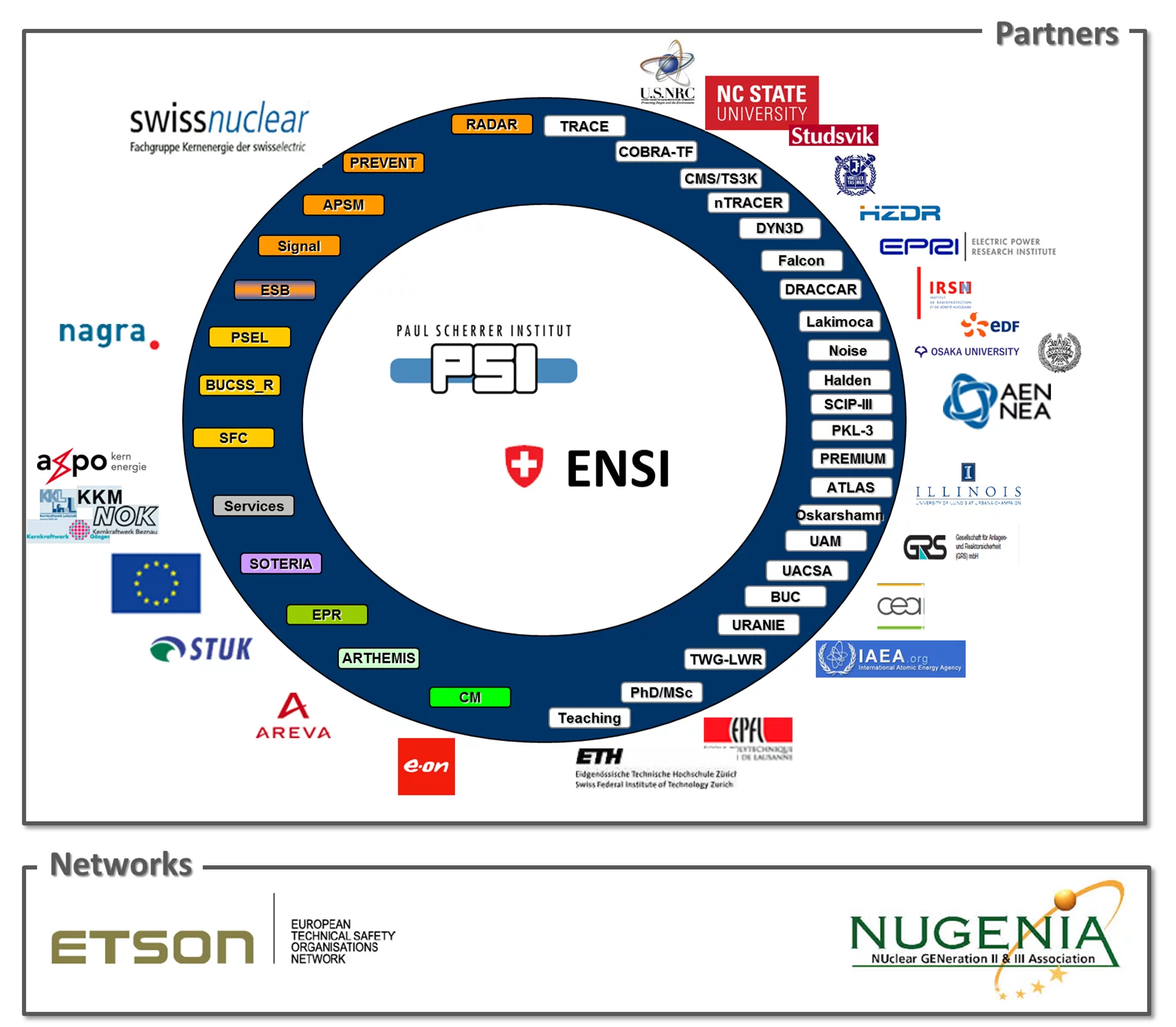Although launched in the early '90s as a bilateral collaboration project with the Swiss national safety authority ENSI (former HSK) aimed at safety and transient analysis research for the Swiss reactors, STARS has over the years evolved to become a program acting as framework for the coordination and management of a multiple set of projects with a wide range of partners.
Today, for safety related research, the main partner of STARS remains ENSI while at the international level, STARS also participates to the European HORIZON2020 SOTERIA project as well as collaborates with the Finnish Nuclear Inspectorate (STUK). Because of its TSO profile, STARS also constitutes one of the main NES member units to the European Network of Technical Safety Organizations ETSON and has also several members assigned as NES delegates to the EU NUGENIA association.
Additional partners for e.g. operational and/or waste management issues are swissnuclear, NAGRA and the Swiss Nuclear Utilities while at the international level, STARS also collaborates with industry including e.g. AREVA on benchmarking/assessments of advanced core simulators or E.ON for enhanced spent fuel characterization.
To maintain and further develop state-of-the-art modelling and computational capabilities along with high-level qualified expertise, STARS also collaborates with code providers, principally for code and model assessment (e.g. NRC, Penn State, Studsvik, Seoul University, HZDR, IRSN, EDF) but also for code co-development (e.g. EPRI, Studsvik). STARS is also highly involved in several international OECD/NEA and IAEA research programs and as part of this, bilateral cooperation with many top-level RND organizations and/or universities are also actively carried out.
To complement the scientific support and R&D activities, STARS is also involved in teaching at EPFL and ETHZ and contribute to the further development of young nuclear scientists and engineers by offering students the possibility to pursue Bachelor, Master and PhD theses.


